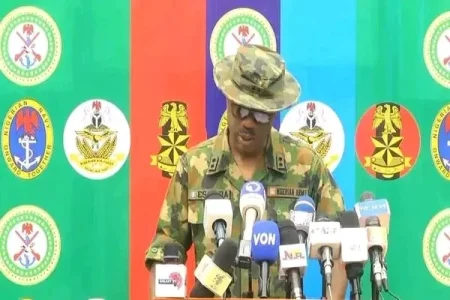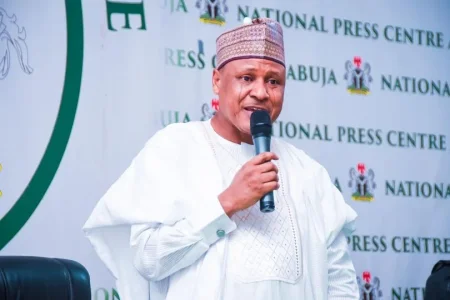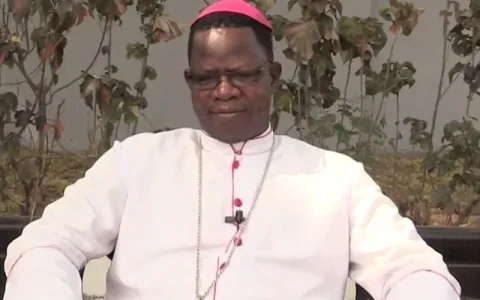
The Nigerian military has warned against potential violence in the upcoming nationwide protest over economic hardship. Major General Edward Buba expressed concerns that the protest could mirror recent unrest in Kenya, emphasizing that while peaceful demonstrations are allowed, any attempt to incite anarchy will be met with strong opposition.
As Nigeria braces for a nationwide protest over escalating economic hardships, the military has issued a stark warning against any potential violence. Major General Edward Buba, Director of Defence Media Operations, cautioned that the armed forces will not tolerate disruptions or anarchy reminiscent of recent violent protests in Kenya.
In a press briefing in Abuja, General Buba emphasized that while peaceful protests are a constitutional right, attempts to incite violence will be met with strict resistance. He disclosed that the military has uncovered plans by some groups to hijack the protest and incite violence against citizens and businesses.
“The planned protest is being compared to the anarchy witnessed in Kenya, a situation we refuse to allow here,” General Buba said. He underscored the military’s commitment to preventing any form of unrest that could lead to chaos and instability. The General also highlighted the severe consequences of war and anarchy, which he described as devastating and destructive, contrary to the romanticized view held by some.
This warning aligns with similar cautions from the police, who have also expressed concerns about potential violence during the protest, scheduled for August. The protest, dubbed 'EndBadGovernance,' is gaining momentum on social media and will be held across all states and the Federal Capital Territory (FCT), Abuja. The organizers, however, remain anonymous.
In response to the planned protests, President Bola Tinubu, alongside governors and the ruling All Progressives Congress (APC), has urged Nigerians to reconsider participating. The call for protest comes amid soaring food and commodity prices, a direct result of recent policy changes including the removal of petrol subsidies and forex window unification.




